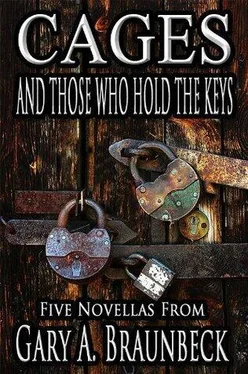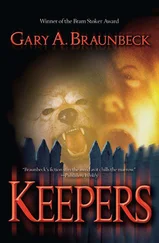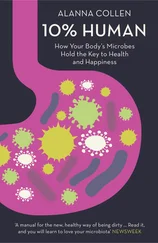“Or shag carpeting.”
He almost grinned. “I don’t make no jokes when I’m taking care of them. The doc likes that, likes my attitude, which is why I can get away with some of the shit that I pull, and whenever the city does its budget-cut dance, like they done here last quarter, I don’t have to worry about being left out of work.”
“That explains why I wasn’t given a choice in the matter.” My lawyer had told me that the courts try to match your own individual abilities to a county department where those abilities could best be used, which is why I’d expected to find myself cleaning offices—I’m a crew manager with a local janitorial company—but Judge Walter Banks was in a bad mood, evidently being pressured to assign more defendants to CS duty ( damn the budget cuts!), and said he’d had his fill of “…people who think they’ve got the constitution of an ox so they don’t think twice about getting behind the wheel while under the influence…” and slapped me with both a five hundred dollar fine and one hundred hours of community service. My lawyer argued that, by law, I was to be given a choice of assignments; Judge Banks pointed out that the matter of being offered a choice was up to the discretion of the bench, and his particular bench felt that I damned well ought to be exposed to the dead in order to remind me of what could have happened had I hit a pedestrian or another car.
So I was assigned to the budget-strapped County Coroner’s Office. As Fred Dobbs’ assistant. In the passenger seat of the meat wagon. Talk about your pot of gold at the end of the rainbow.
“By the way,” I said, “I wasn’t drunk.”
“Of course you weren’t. And every man on Death Row is innocent.”
“I’m not trying to say I didn’t deserve my fine and the rest of it, I just want it made clear that I wasn’t drunk.”
“But you were half-snowed on Demerol.” “I’d gotten slammed with a migraine, I went to the ER, they gave me a shot—” “—and probably told you not to drive yourself home, isn’t that right?” I shrugged. “I thought I could make it home before the stuff really kicked in.” “Appears you were mistaken.”
I shrugged. “Hell, I was probably more dangerous driving to the hospital than I was driving home afterward.”
“Hate to be the one to break the news to you, but ‘under the influence’ don’t just refer to drinking, you know.”
“I do now.”
Dobbs sighed, rubbing one of his eyes. “You’re not gonna grouse like this for the next three weeks, are you? Unless it’s the sound of my own voice—which I find soothing and not without a certain musical quality—I kinda prefer to keep the conversation upbeat.” “I didn’t think I was complaining.” “Maybe not, but you were in the neighborhood. Speaking of—double-check the address for me, would you?” I picked up the clipboard and read the address to him. “You sure that’s right?” I offered the board to him; he stopped at a red light, took the board, and read it for himself. “Huh. That’s odd.” “What?”
“When Doc said East Main, I just kinda assumed it was the Taft Hotel. A lot of old folks and welfare cases wind up croaking there.”
I was familiar with the Taft; hell, anyone who’s lived here for more than a year knows about it. Once the most popular and expensive hotel in the city (named after William Howard Taft, who’d frequently stayed there), the last fifty years have seen it slide not-so-slowly into disrepair and decay, becoming nothing more than a glorified flop-house where those who’ve reached the end of their rope can crawl into poverty’s shadow and just give up. I’d assumed, as well, that the Taft was our destination, but it turned out we were headed for The Maples, an apartment building located two miles farther down East Main Street. The Maples’ residents were exclusively those elderly who still had their wits and retirement funds very much about them, and who were capable of living unsupervised. The Maples had good security, two doctors who lived on-site, an exercise room, a small chapel for Sunday services (some residents could not drive to church, so church came to them), and touted itself as the place to go for “…those seniors who can still do it on their own.” My grandmother had lived there until her death three years ago. Though I hadn’t set foot in its lobby since then, I had no reason to think that The Maples had suffered a fate similar to that of the Taft.
“Well,” said Dobbs, tossing down the clipboard as the light turned green, “I think we can rule out having to wear the spacesuits today.”
“Another thrill my life will have to do without.”
“I can feel your heartbreak all the way over here.”
I picked up the clipboard and looked at the sheet again. Under Caller’s Name, the space was blank.
“Aren’t they supposed to take the name of whoever calls it in?” I asked.
“ Supposed to. The city’s supposed to have fixed all the potholes in the road, I’m supposed to weigh thirty-five pounds less than I do, and you’re supposed to be doing something else besides helping me. For that matter, this whole to-do was supposed to be handled by the book, but there ain’t been nothing about this has gone like it’s supposed to.”
“Meaning…?”
“Meaning that the doc was ordered by the mayor to examine the body hisownself. Doc doesn’t do that unless it’s a murder scene. Some old lady croaks in her apartment or a hotel room or at a nursing home, he sends one of his flunkies to look over the body and make the call to whatever funeral home is gonna be handling it.” He shook his head. “Not this time, no sir— this time the doc is ordered to do it personally. Mayor called him at home around five this morning, made the man get out of bed and go to it pronto. Doc was awfully tight-lipped about everything when he called me about the paperwork. Can’t say I’m too happy about being kept out of the loop.”
I remembered the call; it had come into the office just as I arrived for work. Dobbs had seemed confused as he looked at the forms left on his desk by the coroner—his end of the conversation consisted of, “Yes sir”, and “But why—?”, and “We’ll get on it right now.” It seemed like an awfully short exchange, considering what we were being sent out to do.
“So,” I said, “you’re supposed to be given more information than this?”
Dobbs nodded. “Yeah, but like I said, supposed to don’t always cut it. My guess is that one of the neighbors found her, told the building manager, and the manager called the police, cha-cha-cha—though why in hell the mayor got involved in this is beyond me. We can always ask whatever poor doofus the department left on the scene.”
“There’s gonna be a cop there?”
He nodded. “There’s always a cop there until we show up. Once foul play has been ruled out—and that’s already been done—what you’re left with is a body that’s just laying there stinking up the place and making everyone else nervous as hell. The law doesn’t require that an officer remain with the body until it’s picked up, but it ain’t exactly like Cedar Hill is Miami. They can spare an officer to corpse-sit for an hour or so.”
“I’ll bet that puts them in a cheery frame of mind.”
“Well, we’re gonna be finding out here in a minute or three.”
He drove the wagon into the Maples’ underground parking garage, expertly backing up so that the rear doors faced the freight elevator. We got out, unloaded and unfolded the collapsible gurney, grabbed the clipboard, Latex gloves for each of us, some scissors in case there was carpet work to be done, a couple of filter masks, and then, finally, the body bag.
Читать дальше












